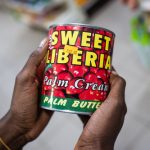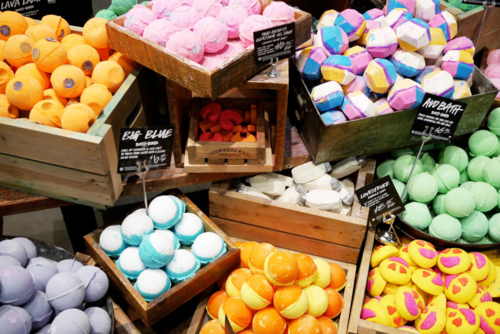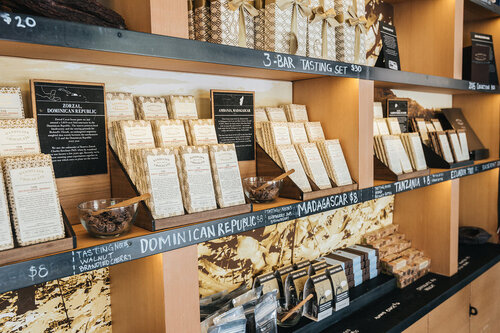
Liberia’s Premium Cocoa Market Opportunity
January 9, 2024
Distribution for Agro-Processors: A guide for distributing products in Liberia
January 9, 2024Mark Wallace
Let’s face it, Liberia will never compete with Ivory Coast and Ghana in terms of cocoa production and nor should it. Here’s why:
Ivory Coast and Ghana account for more than 60% of the global cocoa bean market; increasing production from farms in order to supply bulk exports has been their biggest focus. These countries have encouraged the use of agrochemicals and fertilizers, plantation-style farms, and the use of hybrid seeds. And while this has bolstered production, it has come at the cost of depleting the quality of the soil, cutting down the rainforest, and diluting interesting genetic strains for fine flavor cocoa. In short, cocoa is produced as a commodity, and is sold as such.
Liberia produces far less cocoa, and Liberian cocoa farmers, who have older trees and are dealing with worse roads and infrastructure, incur higher costs than their neighbors to the east. This makes competing for cocoa as a commodity less profitable for Liberian farmers. So, Liberia should not try to develop its cocoa sector solely in terms of increasing bulk productivity.
There’s a way to work outside of the high-production and commodity-style game: position Liberian cocoa for the premium market.
There is increasing global demand for fine flavor, high quality, single origin, responsibly sourced, and sustainable cocoa. These markets are not bound by the commodity pricing of bulk markets, they have the potential to be far more lucrative.
Liberia’s cocoa industry is primed for this market already. Liberia is blessed with a mostly intact, mature rainforest, with cocoa farms that have not been depleted by the overuse of agrochemicals. Liberian farms boast interesting genetic strains of cocoa with fine flavor and its farmers are motivated to produce sustainable cocoa in an environmentally friendly way. Importantly, there are significant financial gains to be returned from this position.
If Liberia promotes its cocoa as a sustainable and high-quality product, not as a bulk commodity, by establishing and aligning industry stakeholders around this common vision and backing it with regulation and policies that support it, then Liberia stands to benefit tremendously.
A country that Liberia can learn from and emulate is Peru. The Latin-American country is currently the ninth largest cocoa producer in the world, and the global leader in supplying premium Organic cocoa. However, they didn’t start out this way. In 2007, they produced only 13,000 metric tonnes of mainly conventional cocoa, roughly the same as what Liberia produces today. By embracing cooperation with smallholder producers, government, international agencies, and the private sector, they were able to more than triple productivity in five years – while also becoming one of the largest players in the premium market. The Peruvian government prioritized improving the lives of farmers and putting the country on the map as a reliable source of high-quality cocoa. Like Liberia, many farmers are organized into cooperative groups which is key for certification. Both countries also have an interesting and unique flavor of cocoa, and intact rainforests that need to be conserved. It is not uncommon for Peruvian cocoa to sell for double or even triple the price of conventionally traded cocoa, leading to increased income for Peruvian farmers, better livelihoods in their communities, and more government revenue.
Liberia can do the same.
GROW has been working with farmer producers, cooperatives, exporters, and industry stakeholders to promote Liberian cocoa as something special and unique. We have helped link farmer cooperatives with exporters, facilitating collaboration along the value chain to support the production of high quality and sustainably produced cocoa, so that Liberian cocoa is attractive to the premium market. We supported these groups to build their capacity to meet the standards of formal certification via better business and trading practices, enhancing financial literacy and recordkeeping, adopting more responsible and productive agricultural practices, and implementing full traceability down to each individual farm – all things that the global cocoa market is increasingly demanding – so that our farmers are not left behind as consumer requirements shift.
So far, we have seen some good initial results. Our Liberian cocoa producing partners are gaining interest from international buyers. More and more, premium chocolate producers and sustainable cosmetics brands are reaching out to GROW for introductions to Liberian cocoa producers (see text box examples).
This tangible interest in the Liberian cocoa sector is evidence in the demand for the premium opportunity. This is not by accident. GROW has been active in positioning our cocoa industry partners so that they are prepared to take advantage.
There is still a lot of work to do to develop this values-driven approach for the Liberian cocoa market. Industry stakeholders need to align on this common vision and regulators and policy makers need to actively celebrate, support and promote Liberian producers as unique in their own right. When Liberian producers are providing this high-value cocoa, the whole country stands to benefit.



GROW Liberia © 2021 All rights reserved



